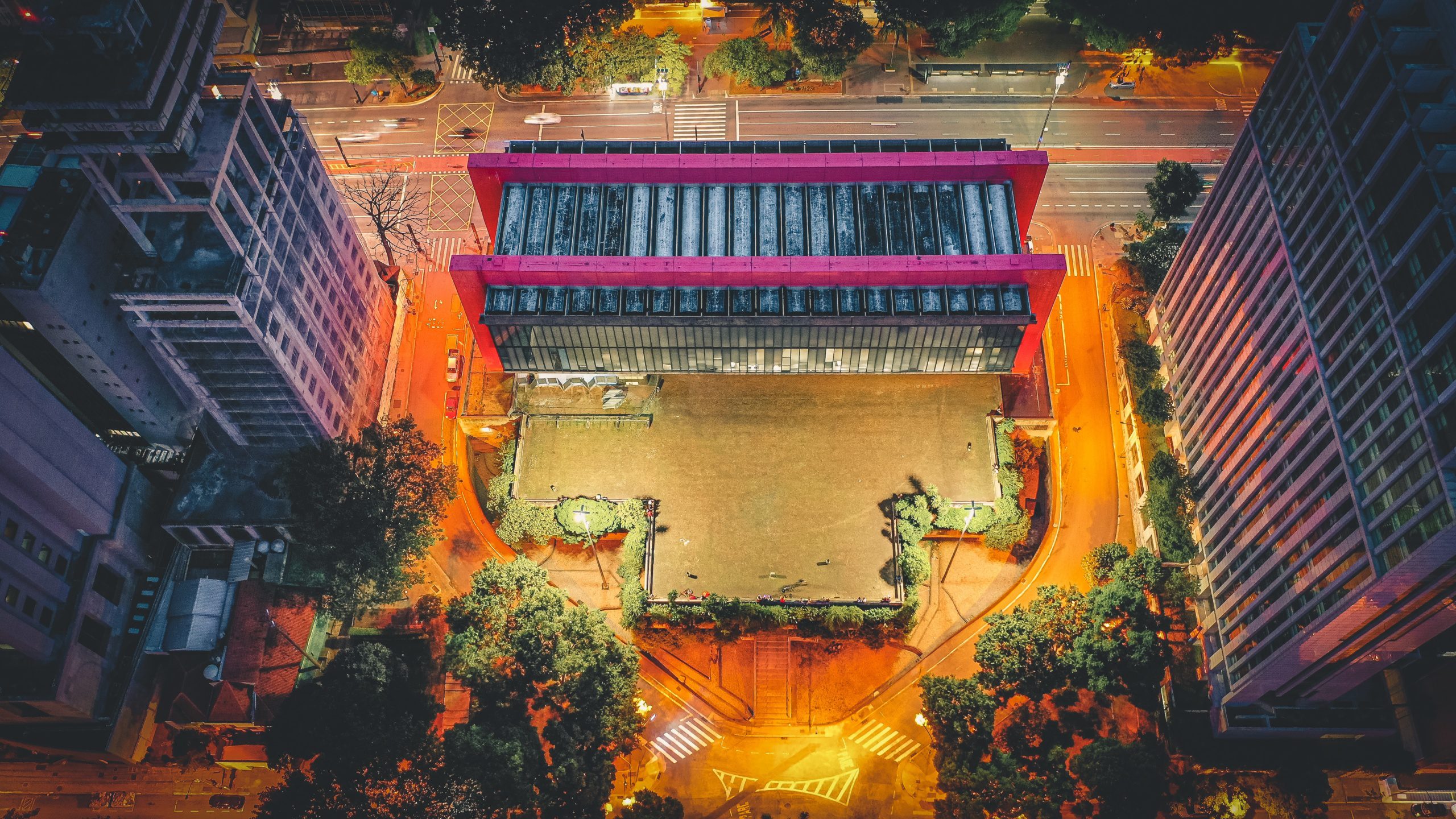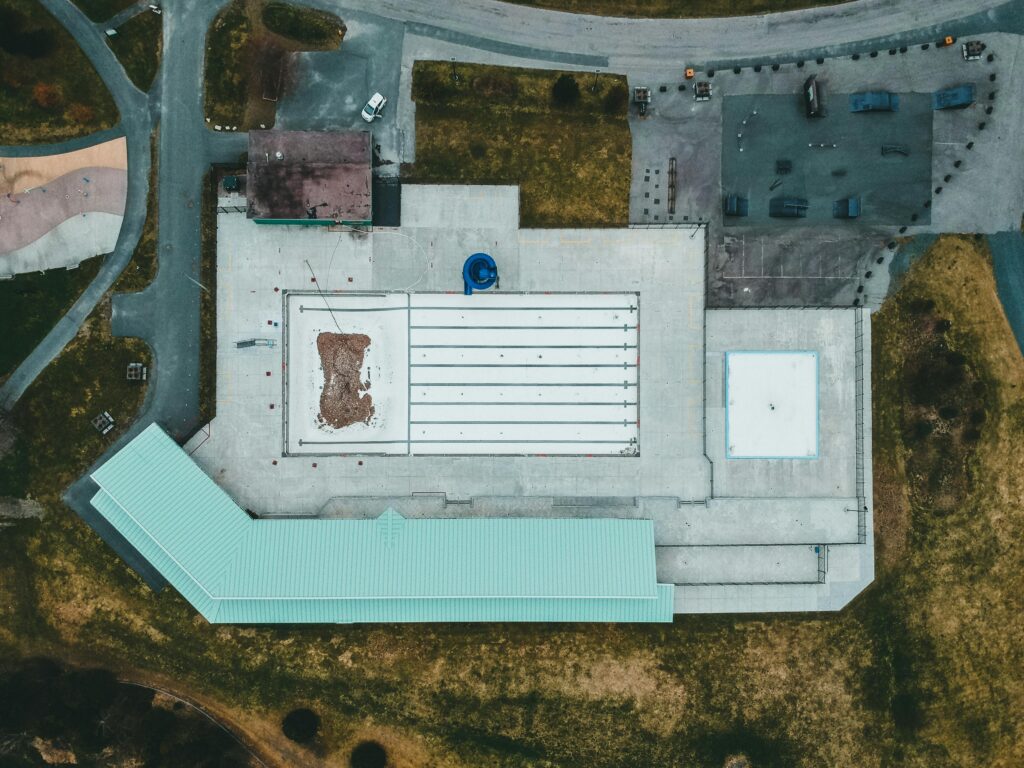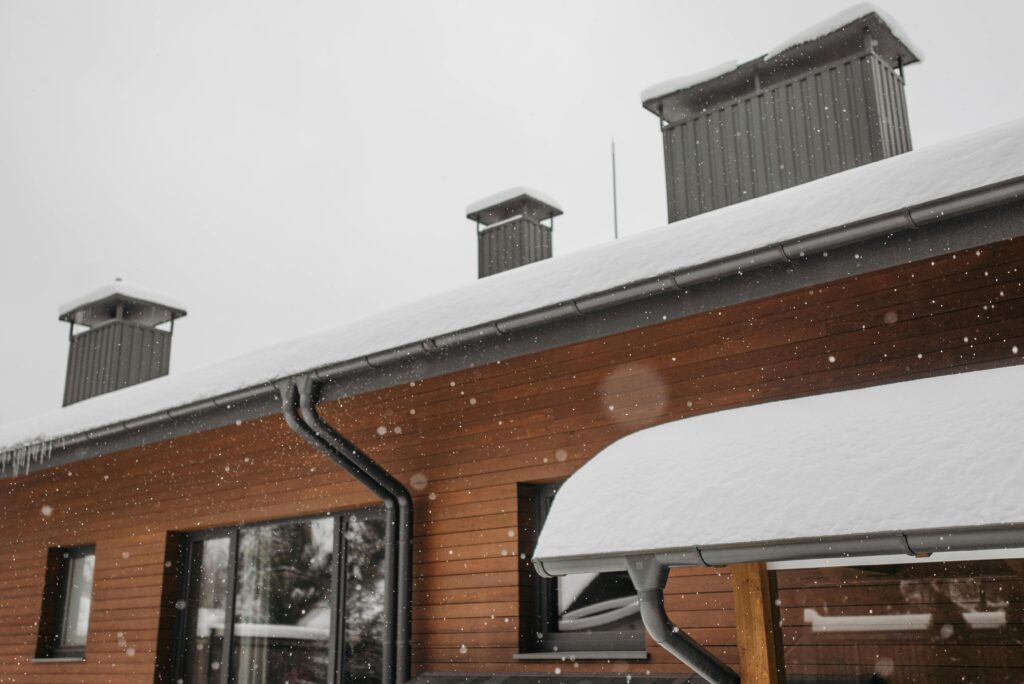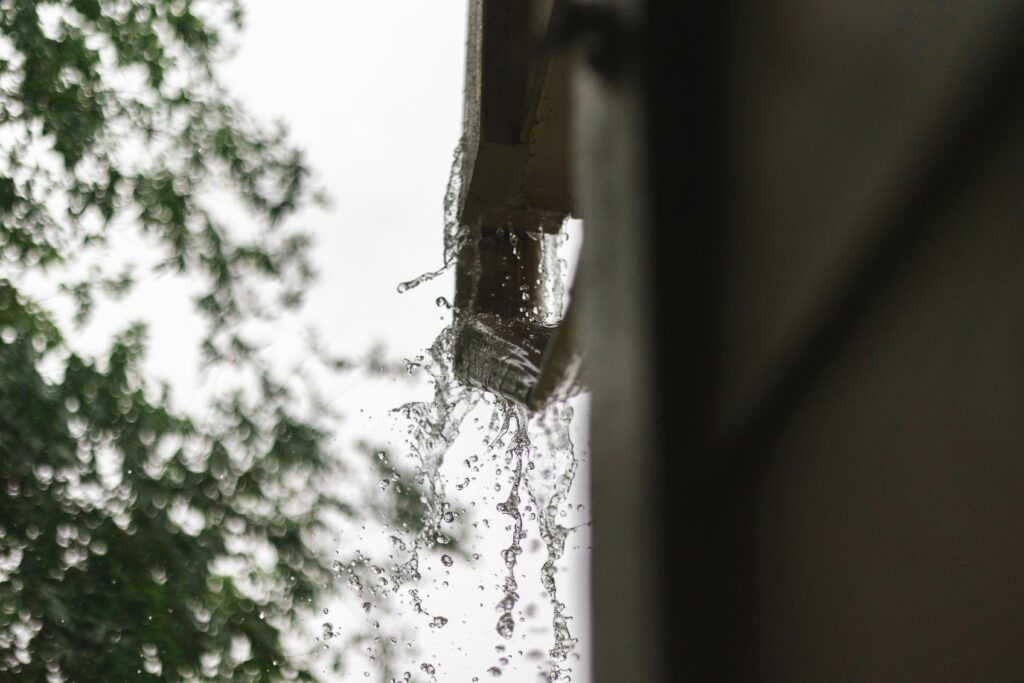Commercial roofing systems work a bit differently than traditionally sloped roofs. Most often, commercial properties such as warehouses, stores, medical facilities, and multi-family buildings use low-slope or flat roofing systems. Flat roofs allow these properties to take advantage of as much interior space as possible. However, flat roofs require materials that can stand up to the elements yet deflect the sun’s rays so they don’t result in heat damage or excess energy costs. The following are some of the most common commercial roofing materials designed specifically for flat and flow-slope roofing applications.
Single-ply Membranes
Single-ply roofing membranes can be made of rubber or plastic and are ideal for flat roofs. These membranes are lightweight and can fit a variety of roof widths and lengths. A few of the most popular single-ply membrane materials include:
- Ethylene propylene diene monomer (EPDM). Made of synthetic rubber, EPDM can be installed for low-slope and flat roofs. It also provides a discreet look since it comes in black. EPDM offers a lot of value for the cost and can provide up to two decades of protection. EPDM is considered to be a more affordable material and can also be coated with rubber to extend its lifespan.
- Polyvinyl chloride (PVC). Unlike EPDM, PVC roofs are white and help reflect the sun’s rays and heat, which can lead to a cooler roofing system and better energy efficiency. One of the advantages of PVC is that business owners can choose from different thicknesses and widths based on their particular roof. PVC is a worthy consideration for industrial roofing systems and can last up to 20 years.
- Thermoplastic polyolefin (TPO). Although TPO traditionally comes in white, newer applications allow property owners to choose from other neutral tones for this cool roofing system. TPO is durable, flexible, and can last up to 30 years with proper maintenance. TPO is also easier to keep clean than some other commercial roofing materials in addition to its excellent weather resistance.
Asphalt-based Roofing Materials
You aren’t limited to single-ply materials for your commercial roofing needs. Although single-ply membranes make sense for a variety of applications, you can also choose asphalt-based roofing systems. These include materials such as modified bitumen and built-up roofing (BUR).
Both modified bitumen and built-up roofing are asphalt systems that consist of several layers. As such, they are thicker, more durable roofing materials. They can benefit roofs that people frequently need to access or walk on. Modified bitumen and built-up roofing also provide excellent weather resistance.
Since modified bitumen comes in smaller rolls, it’s a good roofing material to consider for smaller commercial properties or compact roof spaces. These asphalt-based systems are low-maintenance and provide waterproofing benefits. For up to 20 years of protection, asphalt-based roofing applications may be the right choice for your commercial property.
Choosing the Best Roofing System
There are many factors to consider when choosing the best roofing system for your business. Our team at CDS Roofing can review all your options with you and help you decide between single-ply membranes and asphalt-based systems. We can install the roof that would best protect your property while meeting your budget. Contact us today to find out more about our commercial roofing solutions.



